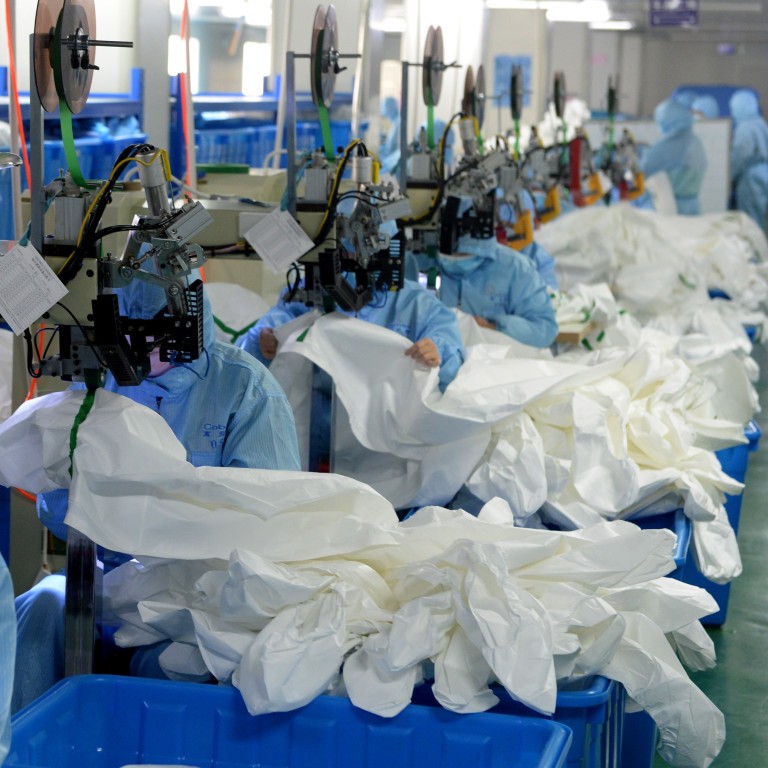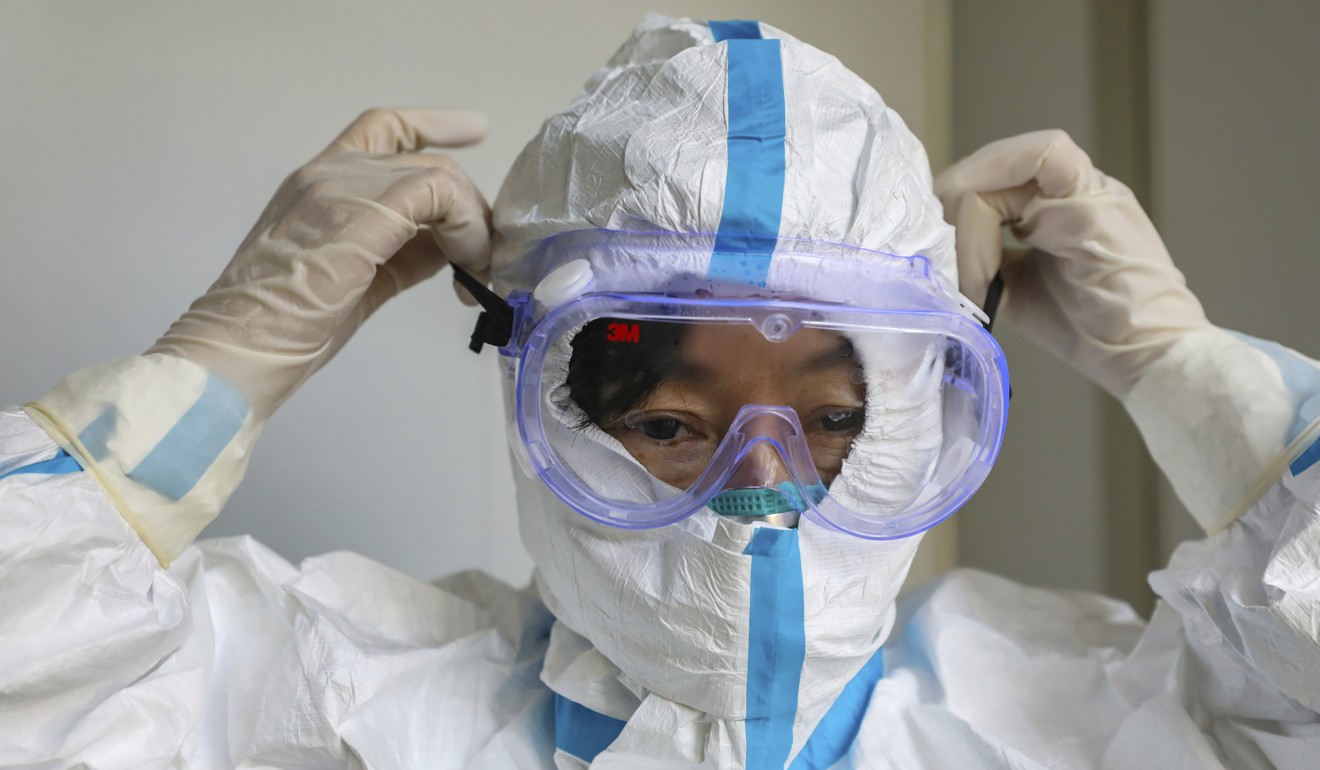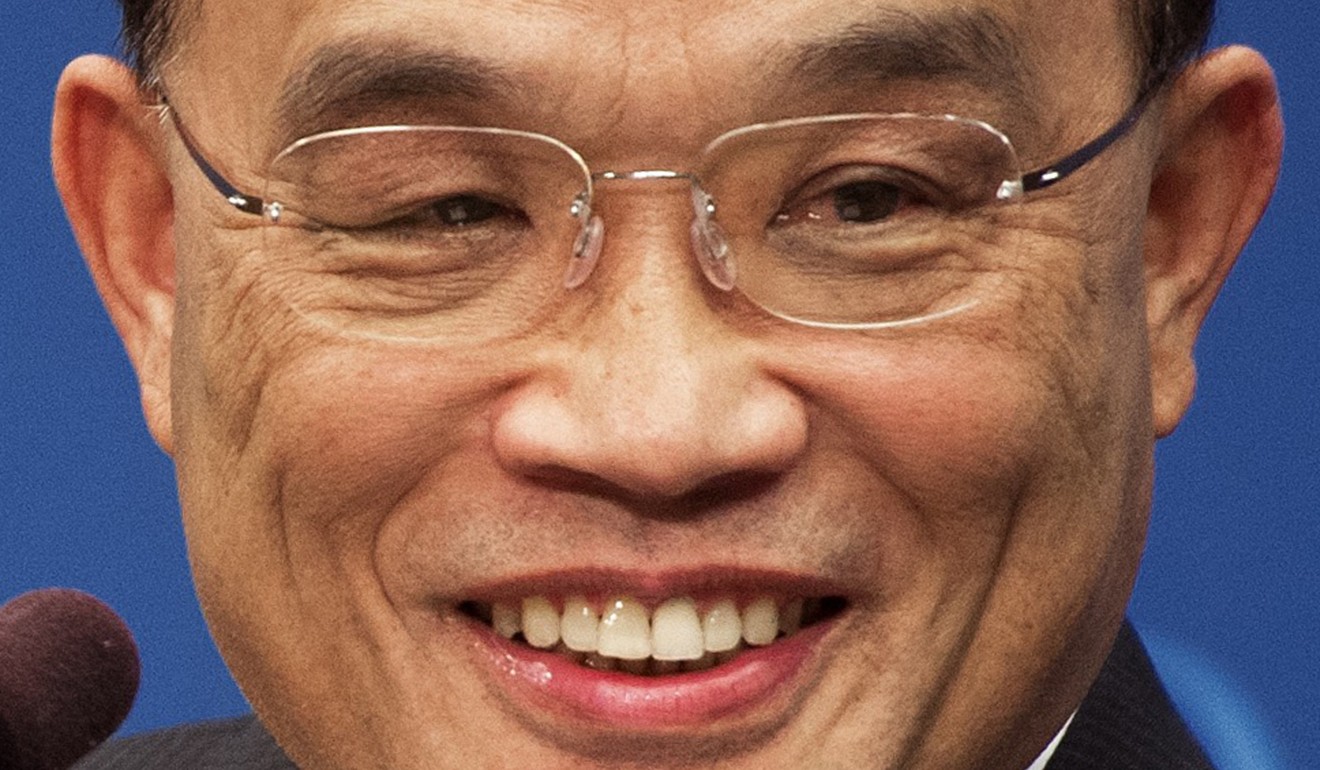
China goes global in search for protective suits, masks and goggles as coronavirus infections begin to take off
- Government estimates that 100,000 pieces of gear are needed every day in virus epicentre Hubei province alone, but Chinese suppliers can only meet a third of that
- Unicef, South Korea, Japan and Chinese embassies are sourcing and shipping more, while Taiwan says it must focus on its own needs
China has turned to the global supply chain for medical equipment including protective clothing, masks and goggles as pressure on health services fighting the Wuhan coronavirus grows and the number of deaths from the outbreak exceeded 200 on Friday.
According to Chinese health authorities, 213 people have succumbed to the virus, while 1,982 more cases were reported on the mainland. They said that almost 10,000 people were infected, far exceeding that of the 2002-03 Sars epidemic, which, according to the World Health Organisation (WHO) figures, infected 8,437 people worldwide and killed 813.
The increasing number of infections is adding to the burden on hospitals and staff across China, especially in central Hubei province, the epicentre of the outbreak.
In Beijing, the Ministry of Industry and Information Technology estimated that Hubei was in need of 100,000 pieces of protective clothing and equipment every day, but that the country’s 40 manufacturers could only produce 30,000 items a day.

Unicef, South Korea, Japan and Chinese embassies were shipping humanitarian aid to China. The United Nations Children’s Fund in New York said on Wednesday that its consignment of masks and protective suits for health workers had landed in Shanghai.
Six tonnes of supplies were sent from Unicef’s stores in Copenhagen, Denmark, bound for Wuhan, it said.
China starts repatriating people to Wuhan, as coronavirus deaths hit 213
“This coronavirus is spreading at a breakneck speed, and it is important to put all the necessary resources into halting it,” Unicef executive director Henrietta Fore said.
“We may not know enough about the virus’ impact on children or how many may be affected, but we do know that close monitoring and prevention are key. Time is not on our side,” she said.
Unicef said it would send more supplies in the days and weeks ahead.
Resupply operations were stepped up on Thursday as the WHO designated the Wuhan coronavirus a global public health emergency.
Tibet confirmed its first case on Thursday, meaning the virus has now spread to all of mainland China’s 31 provinces, municipalities and autonomous regions.
South Korea sent 2 million masks, 100,000 sets of goggles and 100,000 protective suits by a charter plane on Thursday, Seoul said. Minister of Health and Welfare Park Neung-hoo said South Korea was sending US$5 million worth of humanitarian aid to China.
Life in the time of coronavirus: a week in lockdown in Wuhan
Japan sent 1 million masks to China this week. Foreign Minister Toshimitsu Motegi also said efforts were being made to arrange evacuation flights for Japanese citizens.
Japanese local governments and businesses were also rallying to help Chinese medical teams.
On Monday, Inagora, a Tokyo-based e-commerce company, launched a campaign to ship masks to Hubei province. The city of Oita, located on the island of Kyushu, sent 30,000 masks to China on Monday.
Oita and Wuhan have been sister cities for 40 years, according to Japan Times.
On Saturday, China’s embassy in Bangladesh sent 27,200 masks to Kunming, the capital of southwestern Yunnan province. The embassy collected money and bought N95 masks typically used by medical staff, local Chinese media reported.

Taiwan’s emphasis was on protecting its citizens first as it restricted the export of N95 masks for a month from Friday.
Foreign ministry spokeswoman Joanne Ou said on Wednesday that Taipei had to adopt export controls for N95 masks as there were several confirmed cases of the coronavirus in Taiwan.
Ou said that Taiwan had earlier made plans to donate 100,000 masks to Australia to protect crews fighting wildfires and that the first 6,000 had arrived. This led to a shortage of protective equipment for its own citizens.
Taiwanese Premier Su Tseng-chang said on Wednesday that the export ban was “a precautionary measure” and the government was taking steps to guarantee domestic supplies.
The ministry of health and welfare would release 23 million masks onto the domestic market in the coming days, he said.

